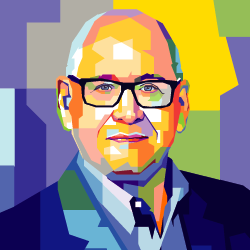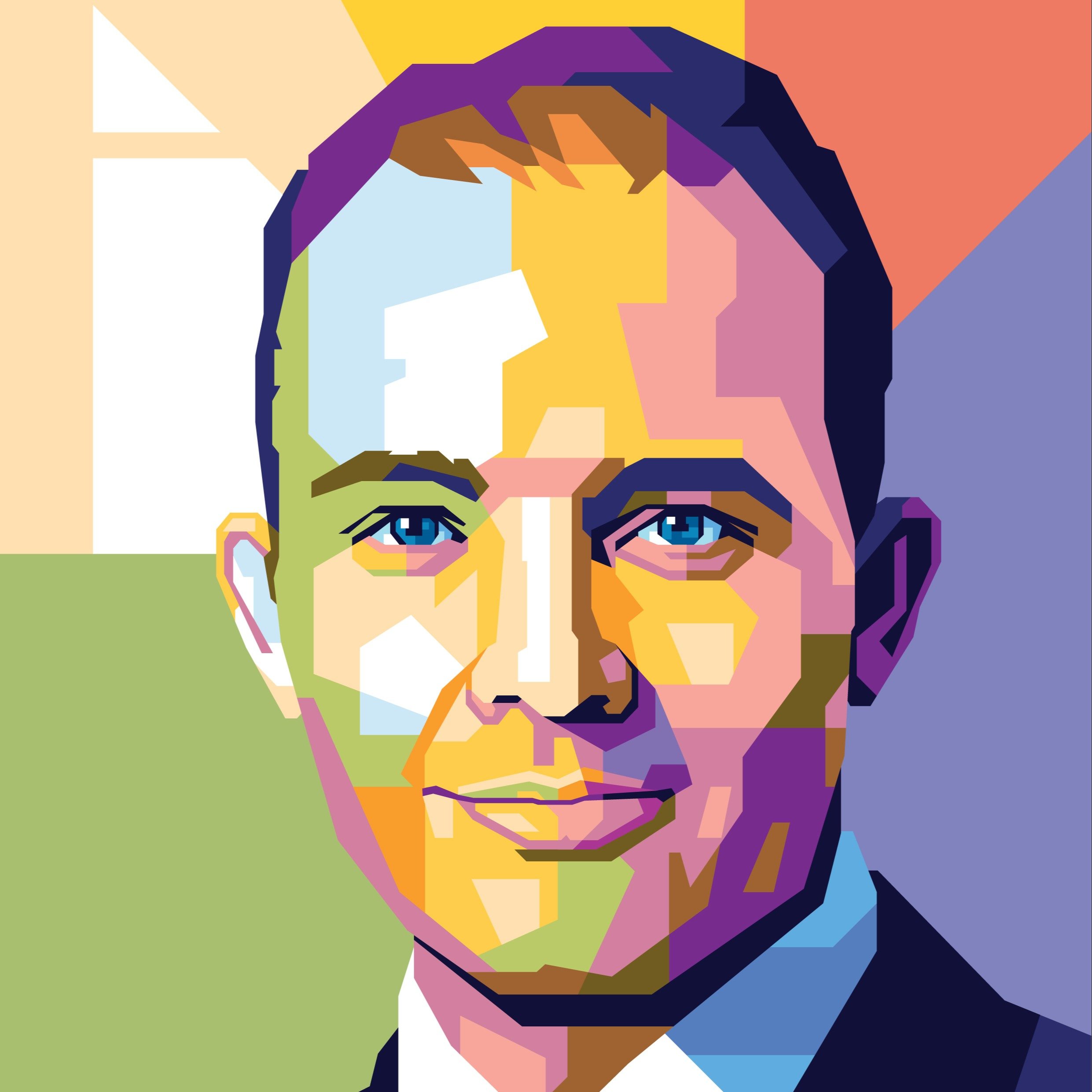The pace of technological change that's taken place since 2000 – not just in our industry but worldwide – continues to accelerate.
Back then, artificial intelligence was still just science fiction. Nobody 20 years ago thought we'd have more computing power in our pocket than in a server room. If I were talking to myself back then and telling him what I know now, my former self would not believe it.
Twenty years ago, we were talking about some of the same things we talk about today: portfolio management software, CRM and financial planning software. But, there was a tremendous amount of paper in those days, so the focus was on scanners and being able to digitize documents. We were also talking about the need to have an email address. Websites for advisors were in their infancy at that point. We had dial-up Internet, which was very slow, and software was on floppy disks. The whole ecosystem was just getting started and not very efficient. There was no Internet ‘cloud,’ iPhones or iPads. We had flip phones and office server providers. Even personal computers were relatively expensive in those days.
I should note that in the old days, there were a lot of all-in-one solutions, both on the broker-dealer side and the RIA side. At some point, firms shifted to wanting best-of-breed in each piece of tech they use, and we've been trying to integrate all this stuff for 20 years. Finally, some firms are throwing in the towel, saying, ‘You know, I'll just have one provider and let them provide everything!’ So yes, some trends are cyclical.
One major change is more transparency around who does what and who is a fiduciary. Technology enabled transparency in understanding there's a difference between getting advice from an employee broker versus an independent fiduciary. Information has become more transparent. Twenty years ago, the average Joe on the street didn't have access to in-depth mutual fund or ETF information. Now, everybody does. In general, we've gone from information scarcity to information overload. Before, the advisor delivered the information; now, the advisor helps clients sort through information to get to what's important.
What the industry has (and hasn’t) learned
I used to give out awards every year. I recently looked back at whom we awarded 15 years ago, just to see if they panned out or not. Obviously, some winners did and they're big companies now. A few of them not so much, or they've just become obsolete. They were great at the time, but it’s stuff we don’t use anymore, such as scanners.
The takeaway for me from looking back is there are two types of technology companies – those that run themselves as an annuity and those that consistently reinvest in R&D. The companies that continue to reinvest in themselves clearly are the ones that succeeded, so constant investment in R&D is essential. Technology doesn't stand still. The minute you stop developing, you fall behind. It's the same for advisors – if they're not constantly investing in their product, then it just becomes an annuity. They milk it for all it's worth until, eventually, everybody leaves.
One thing we got wrong initially was just how slow advisors were to embrace and implement anything new. If you think back, it took years for people to move in the right direction, whether it was getting an email address, setting up a website or moving to the cloud. The adoption was so slow; it was like watching paint dry. We didn't initially understand the inertia in the marketplace and how long it would take the typical advisory firm to embrace technology. But the next generation of advice clients and advisors are all technology natives. They look at it as a tool like any other. They're not resistant to it.
A message we've tried to spread to the industry is that technology is not an expense; it's a capital investment in your firm. You deserve an ROI; if you're not getting an ROI, you're not investing properly. Look at all of the prosperous, multi-billion dollar firms; they're fully embracing technology. They look at it as a capital investment. Yes, not every investment works out; sometimes, things become obsolete and it's a never-ending battle. It’s like when you buy a house, you need upkeep.
There are mistakes people in our industry made 20 years ago that they're still making today. One is they don’t pay enough attention to cybersecurity. We are constantly trying to educate advisors about what they should be concerned about, the latest threats, and where they will likely come from. We think advisors rely too heavily on vendors for cyber protection and are not proactive enough to protect their firms. I think that's a risk that will continue to be with us, and I'm not sure their clients know enough.
You cannot be a good advisor if you're not using technology wisely – and if you don't understand how the technology works, how can you claim to be a fiduciary? Now, I know many firms outsource, such as their compliance. At the end of the day, you have to do whatever your policies and procedures have laid out. It's the same with technology. It's fine to bring in outside experts or have internal experts, but at the end of the day, everybody needs to have some level of knowledge; you can’t outsource everything.
What’s next
Twenty years ago, technology was built for a very specific purpose: to help you complete a task for your job. Now, we're all seeing a future where technology can actively do your job for you. There’s definitely going to be a transition. Advisors need to think about what their true value is. As I have said for years, most advisors don't add much investment alpha, so why spend so much time on it? The general public has come to the same conclusion, hence the popularity of passive Investments. But advisors do other things that add value, and that’s largely in behavioral finance, helping clients with their life goals. Computers can’t act as behavioral coaches today; they are focused on the transactional activities they can or will be able to do. Ultimately, that’s going to happen in every professional service industry. I have TurboTax; if I wanted to, I could do my taxes. But I don't use TurboTax; I still use a CPA because my tax situation is a little more complicated than a W-2 and a 401(k).
Yes, there's already been some fee compression in our industry. Most advisors will say no, but if you look at what they're doing, they're offering more and enhanced services for the same fee and there's a cost of providing those services, so in essence, there has been some fee compression. But it's funny, most clients seem very satisfied with what they get and are willing to pay for it, so until there’s pushback from clients, I don't think that will change. Nobody is talking about AI replacing human advisors anytime soon.
I don’t expect big tech to move into wealth management anytime soon. It’s been very slow going for them in pharmaceuticals, and they're not as embedded in healthcare as they would like to be because it's highly regulated. Well, we're even more highly regulated. They’ve got enough regulators on their backs; I don’t see them wanting to have to answer to the SEC and FINRA, either. Think about the concerns that the SEC has around AI being implemented in any way shape or form on the investment side. It’s scary even to a company deeply embedded in this space. For a Google or a Microsoft to get into that would be, I think, very disruptive to other initiatives that they have. This isn’t an area they’d want to conquer until pretty much everything else is conquered.
One obvious thing advisors should be doing is connecting with the next generation of clients already in their office. If your clients have kids or grandkids, you should be reaching out to them. And when you do marketing, it's got to be different than what you’ve done before. I still get postcards from advisors inviting me to dinners. Who reads those anymore? So, if you reach out to that next-gen client, understand they’re not looking to buy an annuity. You need more sophisticated digital marketing; you need a digital growth platform. You have to be proactive about all this. If you’re not thinking about it today and you wait until that next-generation client inherits wealth, I’m telling you that money's gone. That money's already leaving today. Of course, we're creatures of habit; it's not easy to say, ‘Okay, I'm going to start serving that next-gen client.’ You love your kids, but you know, most of us don't even know what the hell they're doing anymore. But I always have that conversation with the advisory firms, and I tell them you have to start planning for that and talk to your younger advisors for help building that plan.
The original client portals mostly came out of the portfolio management space and focused on performance reporting. That's different from what the next-gen client wants out of a portal. They are all geared toward financial planning. I have Google Wallet on my phone. Eventually, I think there will be a Schwab wallet where you can download all your purchases, plane and theater tickets. Financial planning will be a much more personalized experience, and the way we interact with clients of the future will be even more digital than it is today. We have yet to completely see the synthesis of all the different applications.
Embrace technology, and you can double the number of clients you can serve. I think about the amount of time I used to take reading analyst reports and building portfolios for clients and how I can now build a portfolio for 50 clients essentially with the push of a button and rebalance it in minutes if I want to, or just outsource all of it to Schwab or Canvas or whoever. That was hours and hours of my day that I was spending that I don’t have to spend today, so just multiply that time saved. People are still holding meetings and taking notes so they can share afterward. Why aren't they using software that can capture the entire meeting and then give you an executive summary of everything that was just discussed, which can then be fed into your CRM to automate all the assignments and tasks? These tools are available today and not everybody's embracing them. But they will or they'll be out of business.
We've seen that technology doesn't create a wholesale transformation; it's always incremental. The device you have in your hand today will look even more complicated and capable ten years from now. In the near future, AI will be used in many client service areas in large firms, and it will trickle down to RIA firms. There are big enough RIA firms today that they could use it today. Predictive analytics and things of that nature are already coming to the market. It's a constant transformation and as the technology gets better, smart advisors will find smart ways to use the technology to enhance the lives of their clients.
This blog is sponsored by AdvisorEngine Inc. The information, data and opinions in this commentary are as of the publication date, unless otherwise noted, and subject to change. This material is provided for informational purposes only and should not be considered a recommendation to use AdvisorEngine or deemed to be a specific offer to sell or provide, or a specific invitation to apply for, any financial product, instrument or service that may be mentioned. Information does not constitute a recommendation of any investment strategy, is not intended as investment advice and does not take into account all the circumstances of each investor. Opinions and forecasts discussed are those of the author, do not necessarily reflect the views of AdvisorEngine and are subject to change without notice. AdvisorEngine makes no representations as to the accuracy, completeness and validity of any statements made and will not be liable for any errors, omissions or representations. As a technology company, AdvisorEngine provides access to award-winning tools and will be compensated for providing such access. AdvisorEngine does not provide broker-dealer, custodian, investment advice or related investment services.






